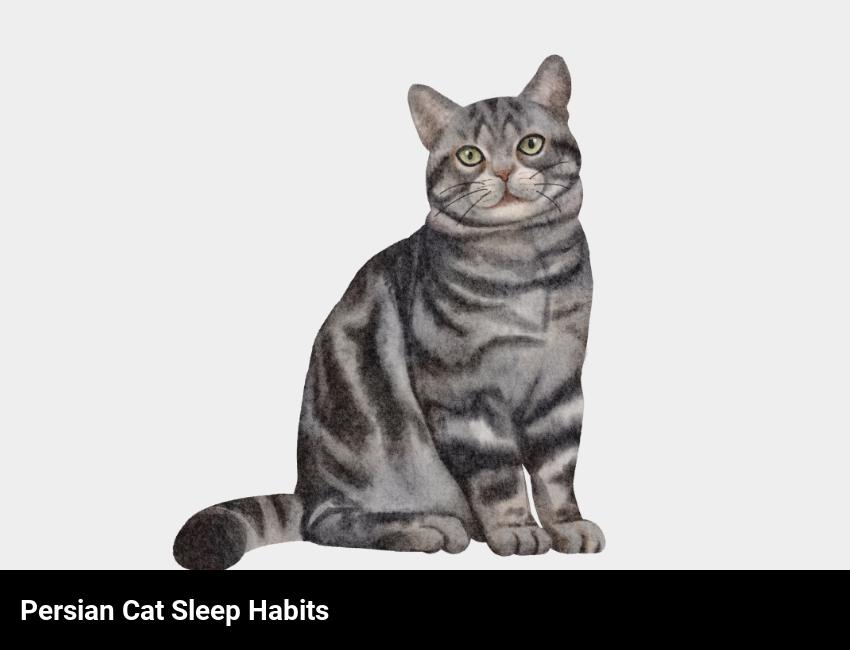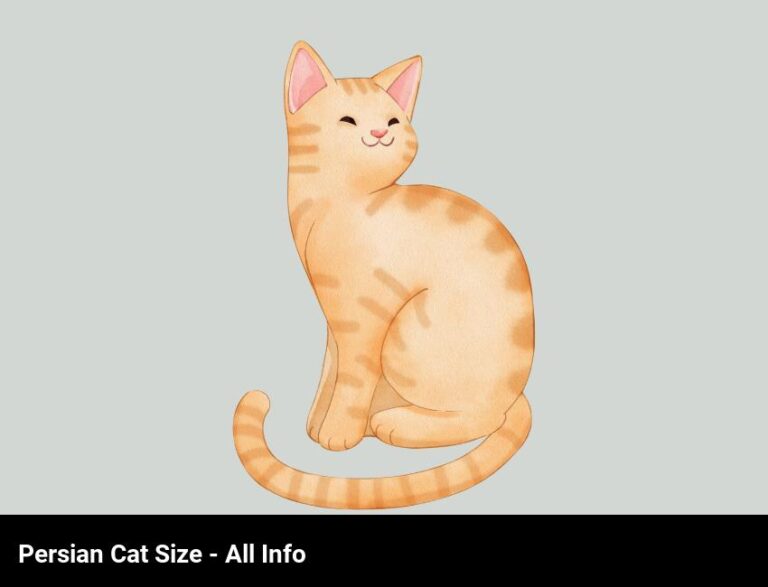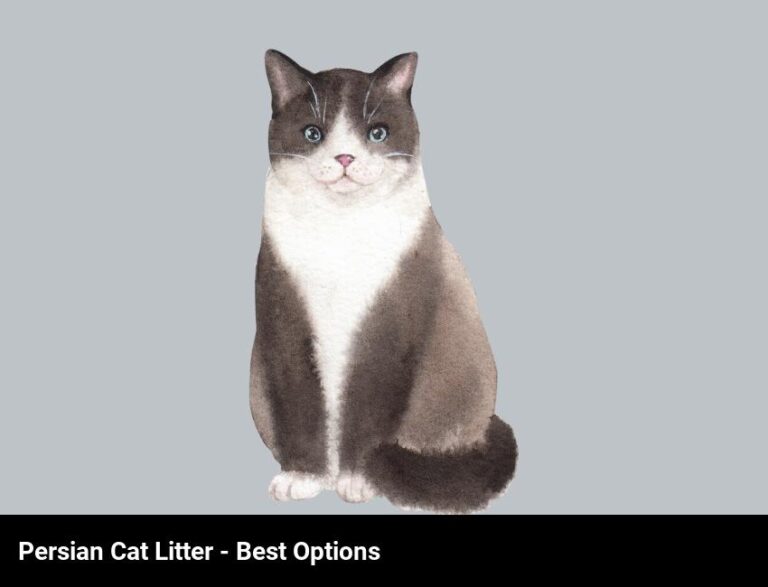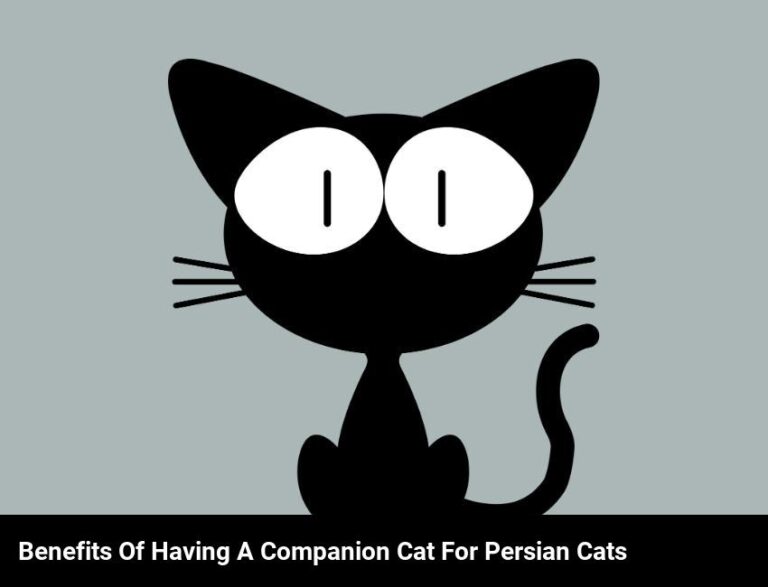Discover The Sleep Habits Of Persian Cats
Persian cats typically sleep 12-16 hours a day, mostly in short bursts. They tend to nap multiple times during the day, usually for a few hours at a time. They also require a comfortable and secure sleeping environment.
As a proud owner of a Persian cat, I have always been fascinated by their sleeping habits. Are they like other cats, getting up to 16 hours of sleep per day? Or do they have different sleeping habits that set them apart from other breeds?
In my journey of finding out more about Persian cats and their sleeping habits, I have discovered that their sleeping patterns and needs are unique. I have learned about the type of sleeping environment they prefer, the signs that tell if they are getting enough sleep, the health risks that arise if they don’t get enough sleep, and the sleeping positions that are common in Persian cats.
I am excited to share my findings with you, so that you too can discover the sleeping habits of Persian cats. Whether you are a first-time cat owner or a Persian cat enthusiast, this blog will provide you with all the essential insights you need to make sure your Persian cat is getting the sleep they need.
What is the average sleep time of persian cats?
Do Persian cats sleep a lot?
Yes, they sure do! Persian cats are known to be quite sleepy cats, usually averaging around 15 hours of sleep every day. That’s right, your Persian kitty could be snoozing away for up to 15 hours each day!
So why do Persian cats sleep so much? Well, it’s all part of their nature. Persian cats are known for their leisurely and relaxed lifestyle, and part of that includes a lot of snoozing. They’re also masters at conserving energy, ensuring that they always have plenty of energy to play and explore when they’re not snoozing.
But don’t worry, your Persian cat isn’t sleeping all day and night. They require regular breaks throughout the day, usually around the same times that you would take a break or have a snack. So, while they do sleep a lot, they’re also active and alert when they’re awake.
In short, Persian cats require around 15 hours of sleep every day, so they can stay active, alert, and full of energy to keep up with their leisurely lifestyle.
How do persian cats sleep differently than other breeds?
You may have noticed that your Persian cat is not like any other breed of cat when it comes to sleeping. That’s because Persian cats have unique sleeping habits that set them apart from other breeds. Here’s how Persian cats sleep differently than other cats:
- Persian cats tend to take longer and more frequent naps than other cats. This is because they are a more laid-back breed and don’t need as much activity as other cats.
- Persian cats like to sleep in close proximity to their owners. This can range from sleeping on your lap or in the same room as you.
- Persian cats will usually sleep on their back or side, as opposed to other cats who have the tendency to curl up in a ball.
- Persian cats tend to purr more when they sleep. This is because they love the comfort of your presence and find it calming.
- Persian cats also tend to sleep much deeper than other cats, meaning they are less likely to be jolted awake by noises or movements.
So if you have noticed that your Persian cat is a bit different when it comes to sleeping, now you know why! Persian cats have unique sleeping habits that make them stand out from other breeds of cats.
What type of sleeping environment do persian cats prefer?
If you have a Persian cat in your life, you know that this beloved breed of feline can be quite particular about its sleeping environment. After all, a creature of such refined taste needs an environment that meets its exacting standards! Fortunately, Persian cats tend to have a few recurring preferences when it comes to their sleeping quarters.
First and foremost, Persian cats tend to prefer sleeping environments that are cozy and comfortable. They love having a soft, fluffy bed or blanket to sink into, as well as plenty of pillows and cushions for extra comfort. Persian cats also love sleeping in enclosed spaces, where they can feel snuggled and safe. If you can provide your Persian cat with a cozy little alcove, they’ll be quite pleased!
Persian cats also tend to prefer sleeping environments that are as close to their owners as possible. They love to curl up in a spot that’s in close proximity to their people. Whether it’s on the bed, the couch, or a favorite armchair, Persian cats love to be near the ones they love.
And, of course, Persian cats love any sleeping environment that is as quiet and undisturbed as possible. While they may tolerate a bit of noise, they’re far more comfortable in a space that is peaceful and calm. If you want your Persian cat to get the best possible sleep, make sure the area is as quiet as possible.
If you can provide your Persian cat with a cozy, comfortable, and quiet sleeping environment, they’ll be sure to thank you with lots of purrs and snuggles.
What signs can you look out for to tell if a persian cat is getting enough sleep?
As a Persian cat owner, you know how important it is to make sure your kitty is getting enough sleep. But how can you tell if Fluffy is getting her beauty rest?
First, keep an eye out for signs that she’s staying in bed for a good portion of the day. If she’s curled up in her favourite spot for hours on end, chances are she’s enjoying a nice, long nap. On the other hand, if she’s up and about, exploring your home and playing with her toys, she’s probably not getting enough shut-eye.
Another tell-tale sign of a well-rested Persian cat is her energy levels. If she’s alert, interactive, and full of life, she’s likely had enough sleep. Conversely, if she’s sluggish and uninterested in her surroundings, she might need to catch some more z’s.
Finally, pay attention to her mood. If she’s cheerful and content, she’s likely getting all the rest she needs. But if she’s irritable and prone to sudden outbursts of anger, she might need to get some more rest.
By keeping an eye out for these signs, you can make sure your Persian cat is getting the sleep she needs to stay healthy and happy.
What health risks can arise if persian cats don’t get enough sleep?
No matter the breed, cats need good, quality sleep to stay healthy. But what about Persian cats? Do they need more or less sleep than other breeds? The answer is that Persian cats have similar sleep requirements as other cats, but they can face some unique health risks if they don’t get enough.
One risk is weight gain. Persian cats are already one of the most prone breeds to obesity, and not getting enough sleep can make this even worse. When cats don’t sleep enough, they don’t burn off energy, which can lead to storing more energy as fat. This can cause your Persian cat to gain too much weight, which can lead to other serious health issues.
Another risk is decreased cognitive function. Without adequate rest, cats won’t be able to think as clearly. This can lead to impaired decision-making and cognitive abilities, making your Persian cat more prone to accidents and injuries.
Finally, lack of sleep can also lead to more frequent illness. When cats don’t get enough rest, their immune systems become compromised, which makes them more prone to catching viruses and infections. This can leave your Persian cat more vulnerable to illnesses, and it can also make any existing illnesses worse.
So when it comes to Persian cats, getting enough sleep is essential for their health. Make sure your cat is getting the rest they need to stay healthy and happy.
Are there any sleeping positions that are common in persian cats?
Absolutely! Persian cats have specific sleeping habits that they often adhere to. The most common sleeping positions of a Persian cat are the “loaf” and the “knead.”
The “loaf” is a classic sleeping posture for a Persian cat. The cat will lay on its side, legs tucked into its stomach, and its head will be resting on its paws. This comfortable position is quite common among Persian cats and shows that they are relaxed and content.
The “knead” is another common sleeping posture for Persian cats. They will lay on their side and rhythmically push their feet against the surface they are sleeping on. This behavior is thought to be the cats’ way of showing affection and is often seen when Persians are cuddling up for a nap.
Persian cats also enjoy sleeping in high spots, such as on top of a bookshelf, or curled up in a sunny spot on a windowsill. They like to be able to see what’s going on around them, so they can feel safe and secure while they rest.
Overall, Persian cats are known for their unique sleeping habits, including the “loaf” and the “knead.” They also enjoy high sleeping spots, so they can be aware of their surroundings.
What can you do to make sure your persian cat is sleeping enough?
As a Persian cat owner, you want to make sure your cat is getting enough sleep. A typical Persian cat needs about fourteen hours of sleep per day, so it’s important to ensure that your cat is getting the rest it needs. Here are some tips for helping your Persian cat sleep:
First, create a comfortable sleeping environment for your cat. Your cat should have its own bed, ideally in a quiet area of the house. Make sure to provide enough soft, clean bedding for your cat to sleep on. Additionally, you should keep the temperature of the room comfortable and at a consistent level.
Second, establish a routine. Cats thrive on routine, and they’ll sleep better if they know when to expect certain activities. Make sure to give your cat enough playtime during the day, and then establish a routine for sleeping. This could mean turning the lights off and providing a calming atmosphere before bedtime.
Third, provide plenty of exercise. Exercise is essential for your cat’s overall health and well-being, so make sure to provide plenty of opportunities for your cat to be active. This can help your cat become tired faster and sleep more soundly.
Finally, pay attention to your cat’s habits and behavior. If your cat is sleeping more or less than usual or seems lethargic or disinterested, it might be a sign of an underlying health issue. If you notice any changes in your cat’s sleeping habits or health, be sure to take it to the vet for a check-up.
Following these tips can help you ensure that your Persian cat is getting enough rest. With a comfortable sleeping environment, a consistent routine, plenty of exercise, and regular vet check-ups, you can help your cat get the rest it needs.

Frequently Asked Questions
What do persian cats do to make sure they get the rest they need?
Persian cats typically like to sleep in a quiet and warm area, preferably near their owners. They may look for a spot on the bed, sofa, or even your lap. They may also purr or meow to get your attention when they want to be petted or cuddled. To make sure they get the rest they need, Persian cats tend to sleep for long periods throughout the day.
Are persian cats more active during the day or night?
Persian cats are generally considered to be more active during the day. They often have bursts of energy during the morning and evening, when they may play or seek out attention. During the night, Persian cats usually sleep more and may take brief cat naps during the day.
How does the quality of a persian cat’s sleep affect its overall wellbeing?
The quality of a Persian cat’s sleep is essential for its health and wellbeing. Poor quality sleep can lead to a weakened immune system, bad behavior, and increased stress. Good quality sleep can help a Persian cat feel more energized, alert, and better able to cope with stress. Therefore, it is important to ensure that your Persian cat is getting enough quality sleep.







